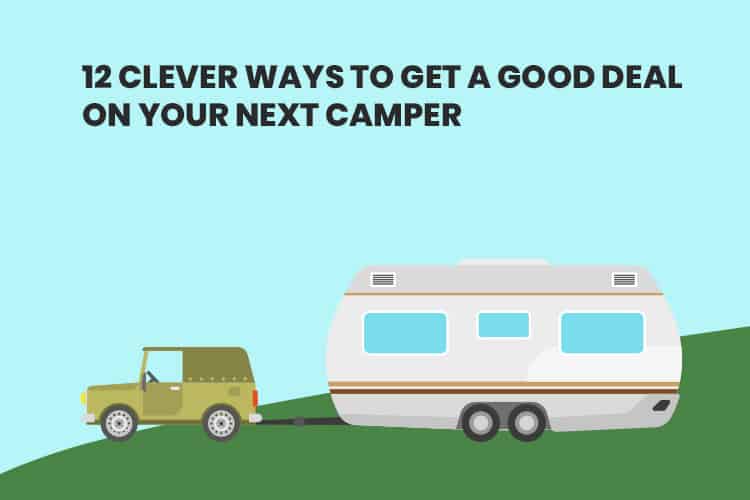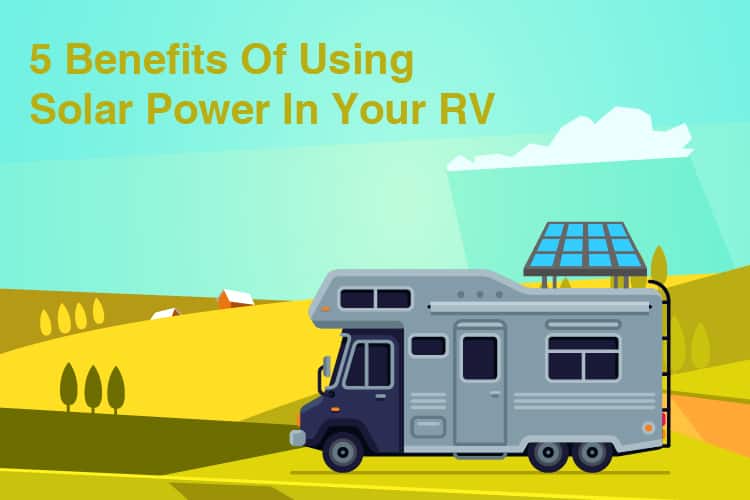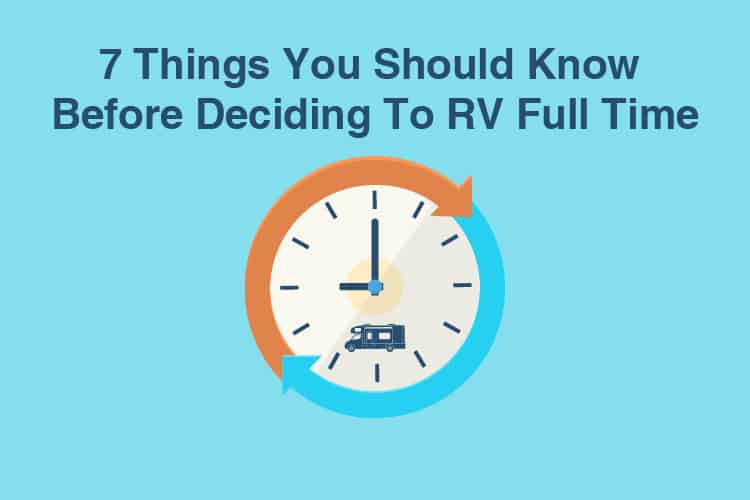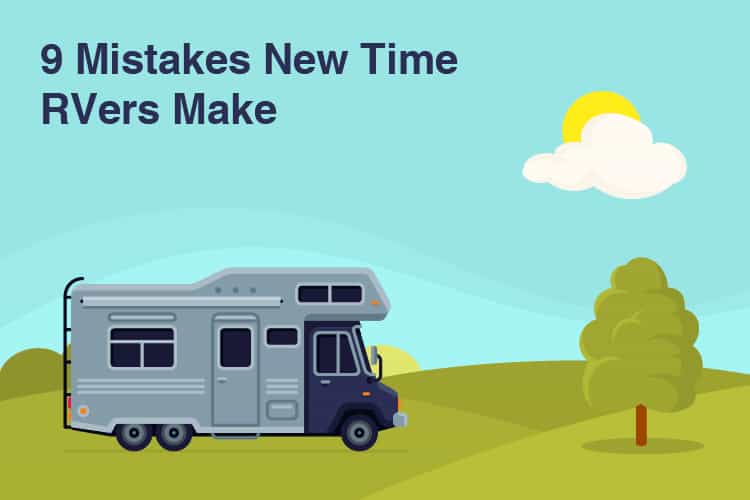Are you in the market for a new camper or RV?
Have you been putting off the purchase because you don’t want to make the financial investment?
Here’s the good news—you can find the perfect camper for your needs.
Here’s some even better news—you can find that perfect camper at a great price.
If you aren’t sure how to get the most vehicle for your money, here are some tips on how it can be done.
1. Go Used
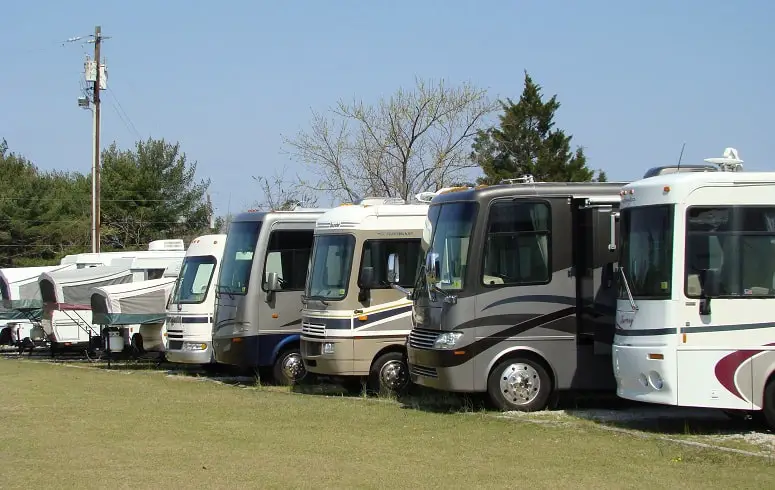
Skip what’s new and on the lot.
Chances are you can find something lightly used for a fraction of the price.
Just like cars, campers and RVs experience significant depreciation directly after driving off the lot that first time.
You’ll also find that recreational vehicles frequently change hands every few years.
That “used” camper you’re looking at may have been on the road just a handful of times.
Whether it’s a new family member or a change of health or career, the camper may no longer suit its owners.
Don’t let the opportunity to buy a new camper at a great price pass you buy.
Go ahead and scan those used ads for your next camper.
2. Nationwide Searches
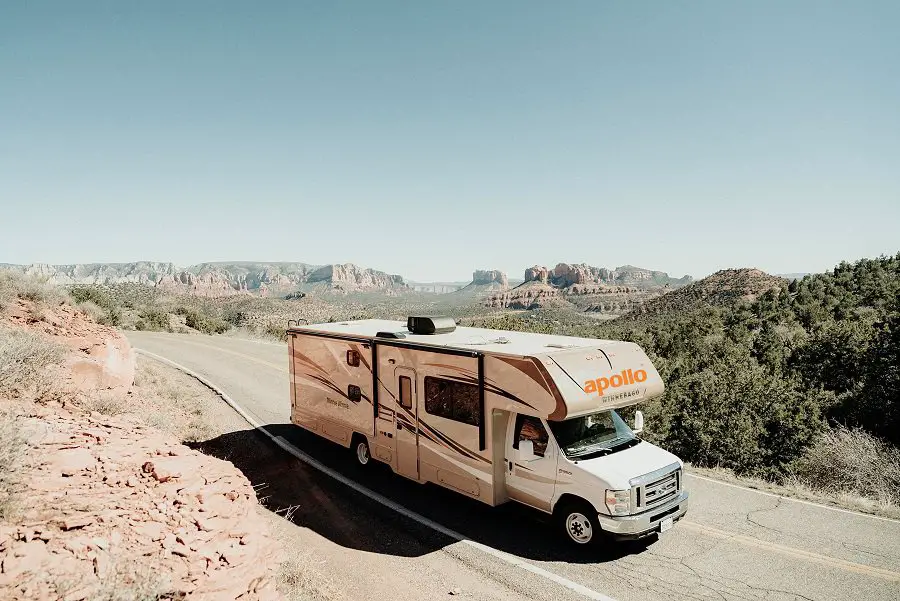
Don’t restrict yourself to what’s local and on the lot.
Especially if you live in an area where campers are few and far between, scarcity will drive up the price.
Even if it’s not local to you, consider looking south for good deals.
Most campers and RVs are manufactured in the south.
Shipping expenses to move those vehicles to northern lots are expensive—that freight cost is frequently tacked onto your purchase price.
If you’re buying used, it’s also helpful to know that RVs and campers from the south haven’t been exposed to harsh winters and winter chemicals.
Sometimes, going out of your way to bring home an RV can reap you a significant amount of financial savings.
3. Do Your Research

Don’t go into your hunt unprepared. Research the going rate of the vehicles you’re interested in.
Weigh up exactly where you’re ready to compromise and what you want your vehicle to be able to do.
If you go in with a plan, you’ll be less likely to be swayed by pretty flourishes you don’t need (or even want).
Don’t forget to look at what other local dealerships have to offer.
Use their current incentives, inventory, and prices, to negotiate your way to a better deal with a competitor.
Remember, people in RV and camper sales have a wealth of information and experience.
If you arm yourself with appropriate information, you’ll be able to hold your own during a negotiation and get the price you deserve on your next camper.
4. Don’t Jump The Gun

Let this be your mantra.
It applies to your pre-purchase research, your dealership and inventory searches—and most importantly, to never make a purchase on your first visit.
Don’t be afraid to walk away from the dealership without your new vehicle.
In fact, anticipate you’ll make several trips to several lots before signing the papers on your next RV.
Walking away from the lot without making a deal leaves you in a position of power.
It will also give you the time to mull over the vehicle without the immediate pressure of the experience to cloud your thinking.
You may find the camper you thought you couldn’t live without while you were standing on the lot doesn’t suit your needs as much as you thought it would.
The time and space to reflect can save you heartache, frustration, and money.
5. Consider The Extras
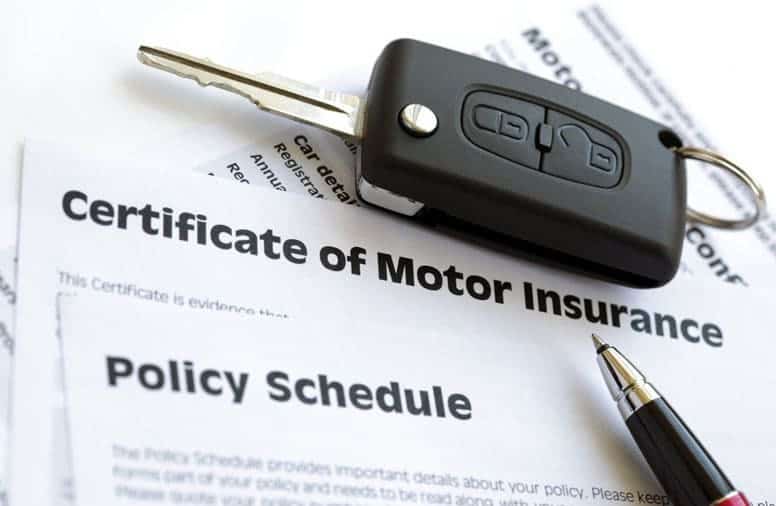
Dealerships frequently offer incentives.
Don’t forget these when you’re looking at the price tag that goes along with the vehicles you’re considering.
See the same model on two lots and one is a little cheaper?
Don’t rush into a buy thinking that a cheaper one is getting you more for your money.
Is the other dealer offering regular maintenance, trade-in values, gift cards, or other perks?
That model listed at a slightly higher price point may actually be the better deal.
If you aren’t sure what kind of incentives may be available, don’t be afraid to ask.
Is there an onsite storage facility you’ll have access to? Are freight or transportation fees included in the purchase cost?
Looking for the silver lining is a great place to start, but don’t forget there may be hidden fees as well.
Additional processing fees? Advertised price not inclusive?
Don’t allow that advertised price to sway you without thoroughly investigating the fine print.
6. Look Outside Your Brand Of Choice

You may have an ideal camper in mind.
There’s more than likely a brand name attached to that image.
Maybe it’s a good experience you had, a look you love, or reviews singing praises. It’s easy enough to wind up with your heart set on a certain brand or model.
It’s great to have a solid idea of what you want. Rather than get caught up in the hype surrounding the brand name, though, look at the features that are drawing you to it.
Is it an aesthetic?
The functionality?
The warranty?
Make a list and bring it with you to your dealership.
You may find a no-name vehicle that ticks every box and saves you thousands. At the end of the day, you’re looking for an RV or camper that will enable you to get out on the road.
If you can find one at a fraction of the cost, go for it—whatever brand it may be stamped with.
7. Upgrade … Later
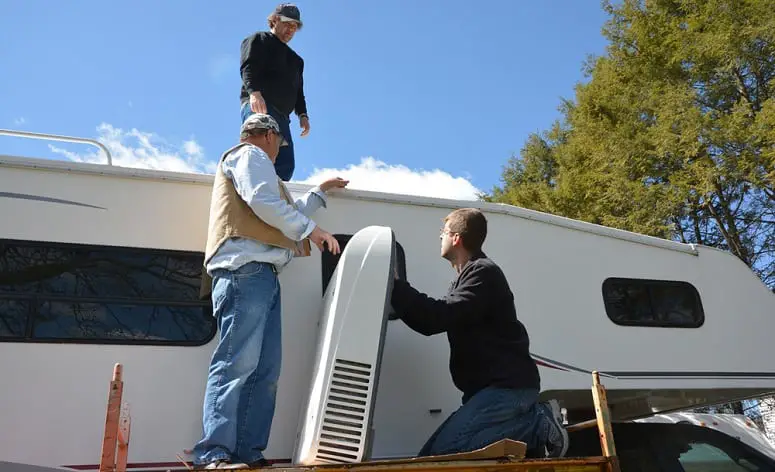
Bells and whistles are nice.
There’s no doubt about it. They’re also costly—and they add up quickly.
If you’re looking to get into an RV or camper for a good price, don’t shy away from picking up a basic model.
If the floorplan or add-ons don’t suit your personal taste, there’s no reason you can’t update it to your specifications at a later date.
Look beyond how the camper currently looks. Will it do what you want it to do for the time being?
Does it have the potential to be upgraded in the future?
If the answer to these questions is yes, and if it will save you a bundle, this may be a deal you don’t want to pass up.
8. Invest In A Fixer-Upper
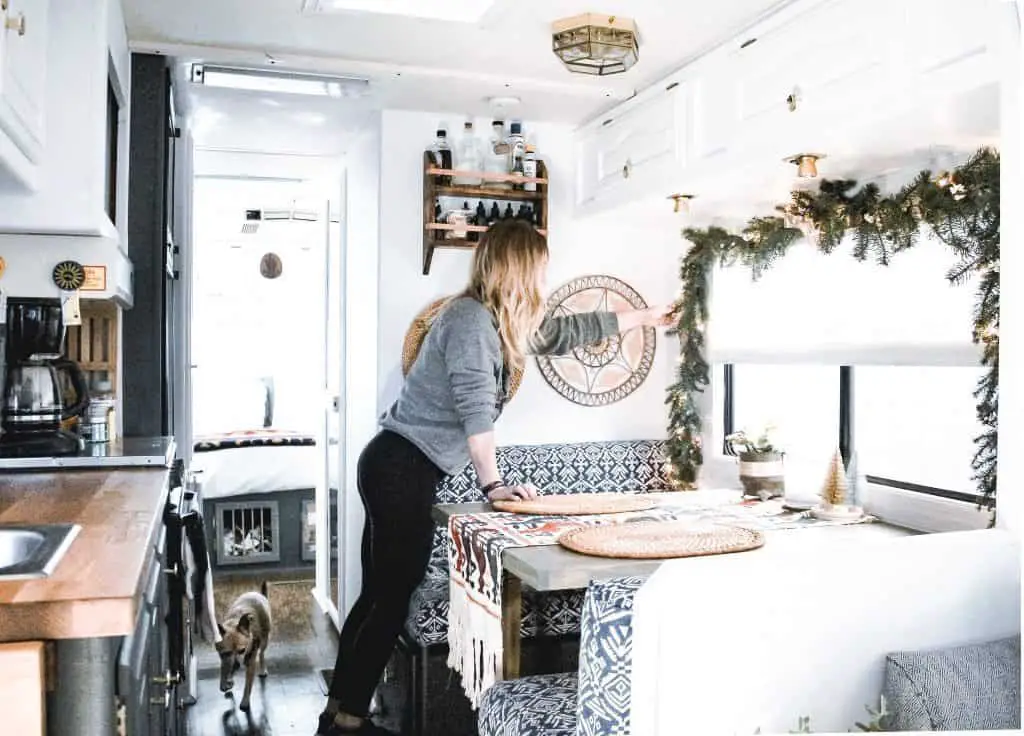
Do you have a vision of what your camper or RV experience should be like?
Do you have a price point that seems to be the limiting factor?
All you need is a camper or RV with good bones, and some time, and energy.
You could end up with the RV of your dreams at a fraction of the cost.
If you haven’t taken a look at RVs or campers that need a total overhaul, do yourself a favor and check them out.
You’ll be surprised how many are out there, priced to move, and still structurally sound.
You can get an incredible deal by buying into a fixer-upper.
That’s not to say fixing up an RV or camper won’t cost you money.
It will. But there are some upsides to building that sweat equity yourself—not the least of which is ending up with a one-of-a-kind roadworthy jewel.
First, you’ll be able to embark on projects as you have the finances to do them.
Plot out what you want to do, how much it will cost, the time it will take to update, and begin to save.
Once you’ve reached your goal, knock out the project and plan your next one.
The second big benefit?
You’ll be able to completely customize your vehicle.
Have a favorite color, theme, or material?
When you’re doing the work yourself you don’t need to rely on what manufacturers think will sell.
Simply pick out what you like and love your results.
Finally, putting in the effort to restore a recreational vehicle will add another dimension to your RV or camper experience.
Whether you found it frustrating or incredibly rewarding, it’s one more adventure you can say you’ve shared while on the road.
9. Visit RV And Camper Shows
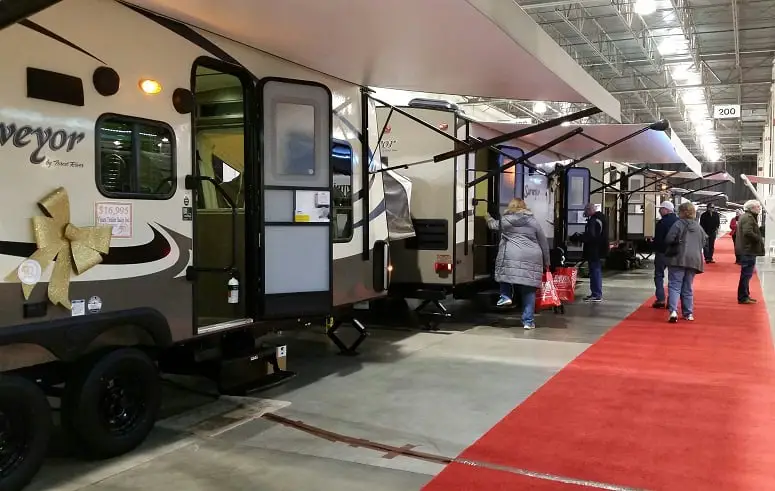
If you can make it to an RV and camper show, take the time to do it.
Not only will they be an incredible source of information for you—both from the professionals and the people who use the products—but you’ll also have access to vendors.
These shows are a huge deal. Vendors come from all over, knowing potential buyers will as well.
People come to shows ready to buy—and that means vendors come with their stock ready to sell.
Shipping to a show can be expensive. Vendors expect they’ll be able to make the money back through the sale of their stock.
You can use the risk they’ve taken to your benefit, as long as you’re willing to risk a little as well.
Spend the first portion of the show looking at the vehicles and deciding what works for you.
Talk to other people and hear their experiences and advice.
On the final day of the show, go ahead and make your move.
This is where the risk you’ve taken comes into play. Have all of your favorite models sold? Have a backup (or two) in mind.
Vendors may be willing to cut an exceptional deal on a vehicle to avoid the cost of transporting it back—and to recoup some of what they’ve already spent.
10. Be Patient
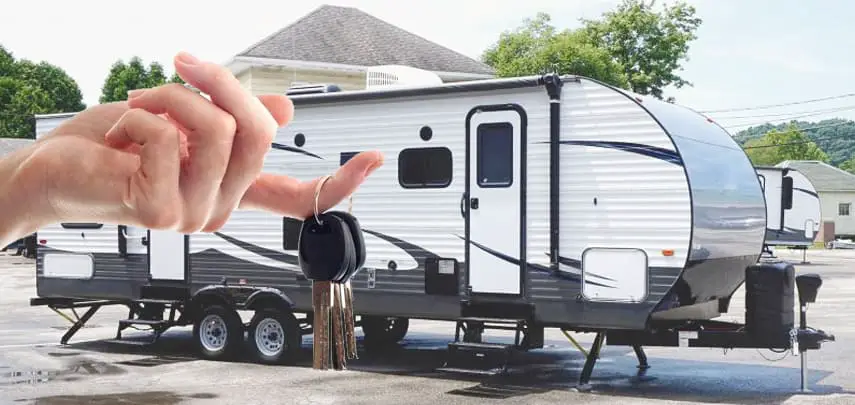
Once you’ve committed to bringing home a new RV or camper, waiting can be the hardest part. With a little bit of patience, though, you can bring home a vehicle at a great price.
Whether it’s holiday deals or seasonal fluctuations, dealerships will offer outstanding sales periodically.
Do some research and find out when your local dealer will offer the best sales of the year.
Promotions and deals will always be most substantial when they come straight from the dealer.
Come with a firm budget and expectations in mind.
If your dealer says they can’t make it work, don’t be afraid to say you aren’t interested and to walk away.
You may be surprised how walking away puts the power back in your corner—and how frequently your dealer is suddenly able to come to agreeable terms with you.
Remember, from the seller’s perspective, any sale is better than no sale. Don’t let sales people bully you out of a decent price.
11. Shop At The End Of The Season
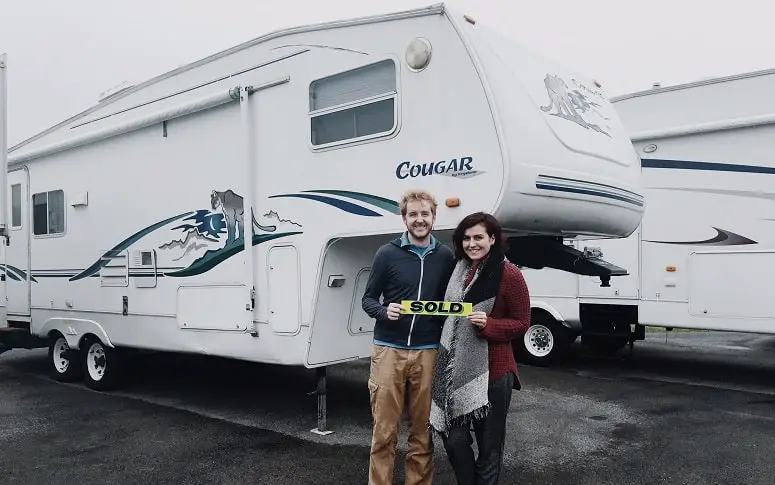
Recreational vehicles are a lot like cars—at the end of the year, you can expect a brand new inventory of vehicles that need to be sold.
You can also expect there are a lot of last year’s models still waiting for their new owner.
RVs and campers do have their differences from cars, though.
While you use cars year round, there are still peak times where car sales happen. RVs and campers have a true travel season though.
This can play in your favor when it comes time to buy your next RV.
If the season is winding to a close, the dealership knows there will be fewer people walking through the doors—and a limited amount of time to move the inventory they have.
Make your needs and wants clear up front.
Make it equally obvious you’ll walk out the door if the dealer can’t accommodate them. You may be surprised by how willing the dealership will be to cut you a deal.
12. Take Risks
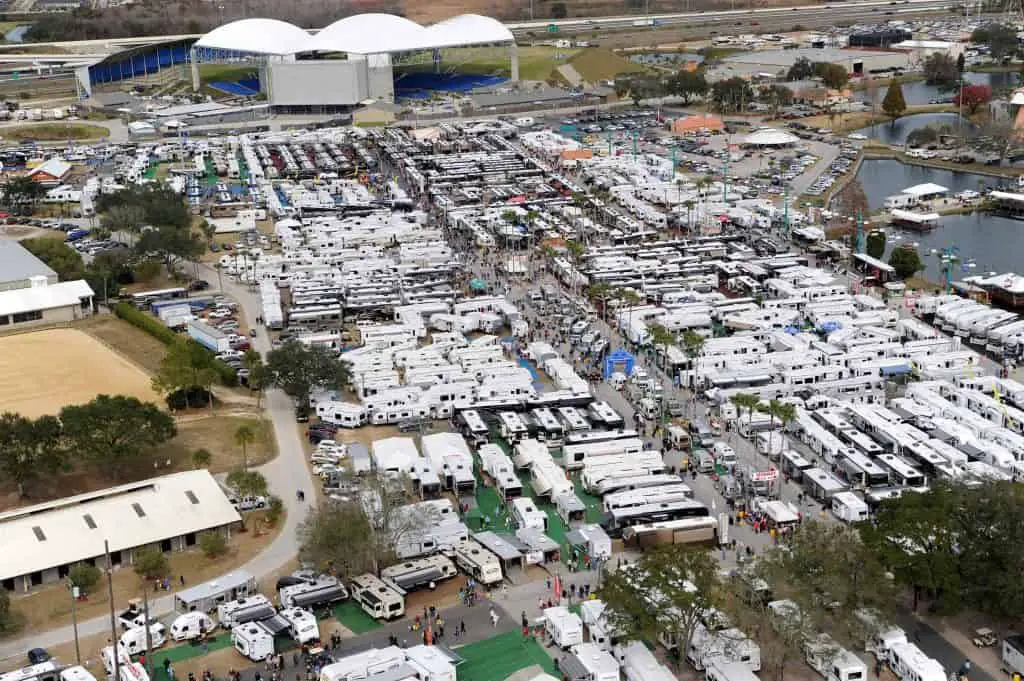
You’ve seen it crop up here amidst other advice, but it’s worth having its own section.
Take risks.
Now, I don’t mean pick up that camper you’ve seen sitting on the corner for months—the one with obvious roof and rust damage.
What I mean is, make calculated choices that could provide you with an exceptional deal, but also know you may not walk away with a new vehicle.
Shopping at camper shows, waiting for deals, shopping at the end of the season—these are all moments where you are taking some risk.
The make and model you have in mind may not be available, or may not come down to the price you wanted.
If you can stomach it, taking this kind of risk can lead to the most financial reward. Take some time to map out your strategy—then track down your next deal.
Get The Bargain You Deserve
Money isn’t an infinite resource.
There’s only so much to go around.
If you can bring home your new camper at a great price, it’s going to open up more travel and fun opportunities for you to have with your new vehicle.
If you’ve been putting off a purchase because you haven’t thought it was in the budget, take a close look at this list.
You may find your dream of owning a camper or RV is closer than you think.


